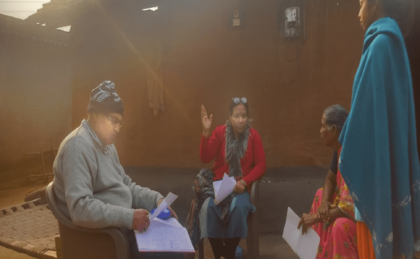Anita Story
I am Anita , Currently I am studying in the 8th standard.
Due to financial constraints and vulnerable circumstances, my father engages in activities like preparing Hadiya and woodcutting to meet our instrumental and basic needs. He completed his education up to the 5th class, while my mother never attended school.
Despite the economic challenges, we face stigma and discrimination every day from the upper class in our village.

One day I shared my feelings about continuing studies with my parents. Then, my father argued with my mother and said, “Marry your daughter; there is no need for her to continue her studies. I am unable to fulfill the basic facilities and instrumental needs, and after her marriage, her groom will take care of these things.”
After this conversation, I didn’t want to stay in the village. I wanted to run away from home or even commit suicide, and I tried to run away. Then, I went to Sevika Didi and asked her, “Bal vivah karne se kya kya hota hai?” She was shocked. She took me back to my home and asked my parents why I was asking these things.
When CKN Bhaiya and Didi came to my hamlet, Sevika Didi called my parents. Didi had a conversation with my parents and asked for details about my family. She informed them about the importance of education, the right to education, and the laws and norms related to child marriage, as well as the risks associated with children born to young mothers.
Subsequently, my father understood and took a pledge, “Hum sabne thana hai bal vivah mitana hai” to prevent me from getting married early. He also signed an undertaking form in front of Sevika Didi. As a result of these efforts, I continued my education in a government school. My parents gained an understanding of the significance of education and the legal consequences of child marriage. Additionally, my parents were educated on the potential health risks for both my mother and me in early marriages, as well as the risks associated with children born to young mothers.
